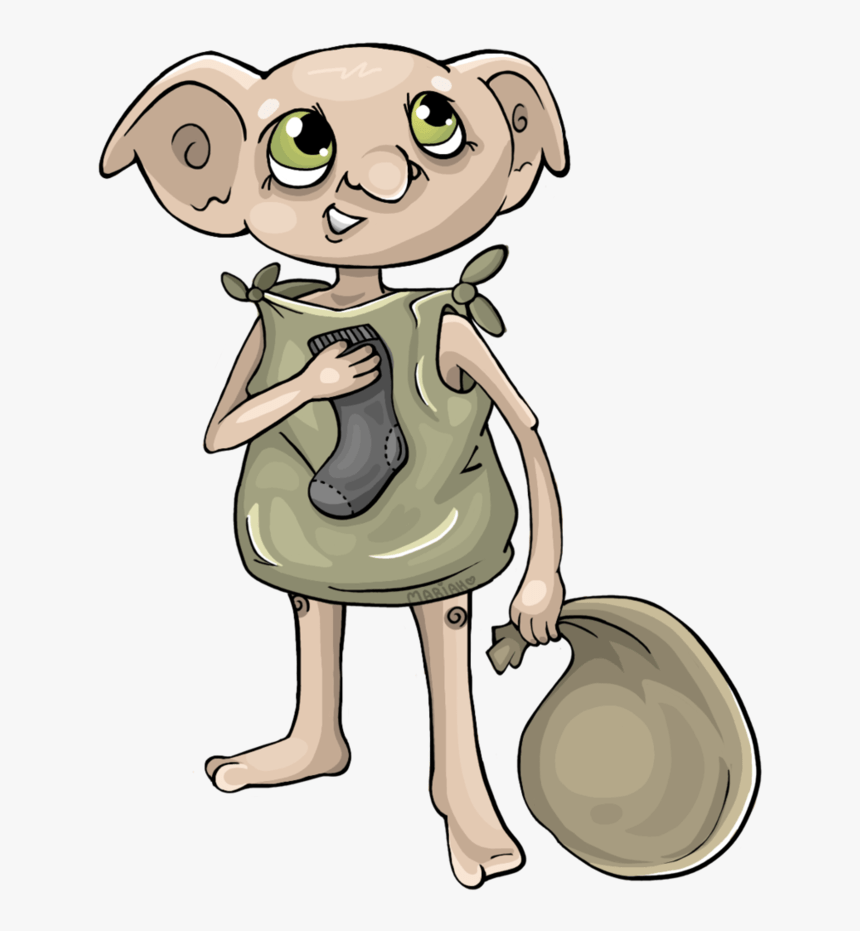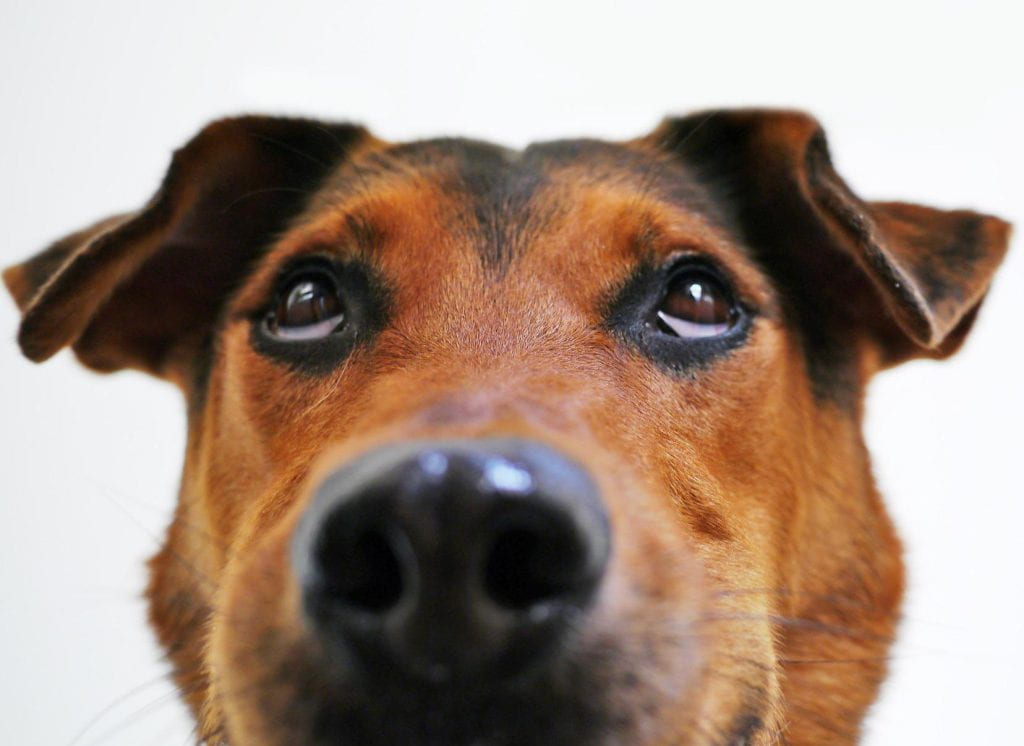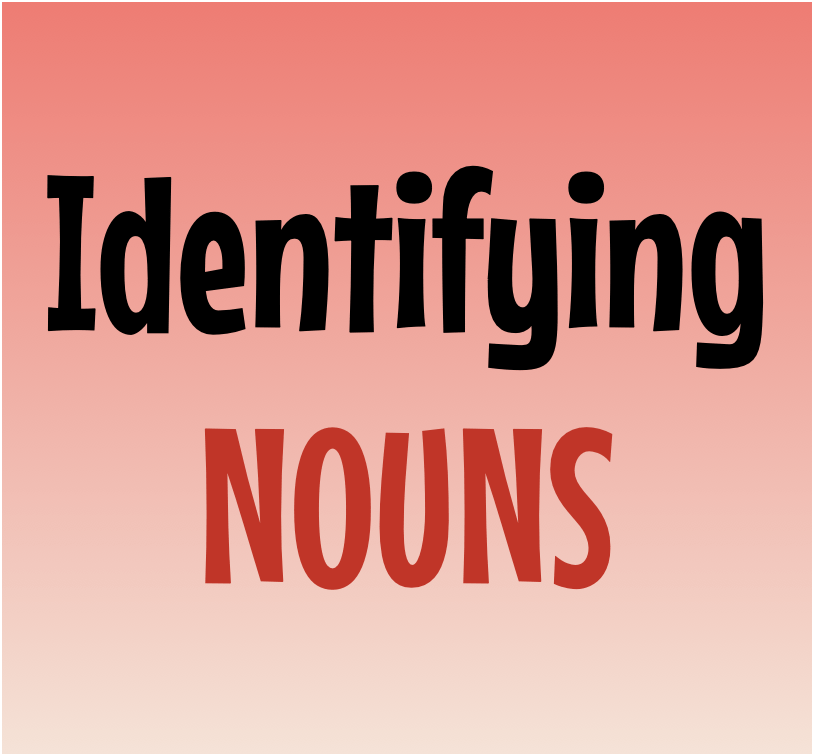A German Superpower: Flexible Word Order 🤸🏾
Page created by Roslyn Green in March 2023
The flexibility of German word order opens up expressive possibilities that are unimaginable in English. As a result, a German writer or speaker can emphasise key ideas in dramatic and memorable ways. Nevertheless, there are rules: the first and most important one is about the position of the verb.

The Verb is Anchored in the Second Position
The anchor of the German sentence is the conjugated verb in the second position. Once the conjugated verb is moored in place, the rest of the sentence can flow around it, freed from the constraints of English word order.
Positions 1, 2 and 3: Sentence Examples
Key: subject | conjugated verb | adverb

Example 1: Outwardly she seemed calm. ⇢
| 1st Position | 2nd Position | 3rd Position | The Rest |
| Äußerlich | wirkte | sie | ruhig. |
| Sie | wirkte | äußerlich | ruhig. |
Image by Pete Linforth from Pixabay

Example 2: I’m starting to get cross with you. ⇢
| 1st Position | 2nd Position | 3rd Position | The Rest |
| Langsam | werde | ich | sauer auf dich. |
| Ich | werde | langsam | sauer auf dich. |
Image by Robin Higgins from Pixabay

Example 3: The party was a complete flop. ⇢
| 1st Position | 2nd Position | 3rd Position | The Rest |
| Die Party | war | leider | ein glatter Reinfall. |
| Leider | war | die Party | ein glatter Reinfall. |
Image by andreas160578 from Pixabay

Example 4: They are supposedly filthy rich. ⇢
| 1st Position | 2nd Position | 3rd Position | The Rest |
| Sie | sind | angeblich | stinkreich. |
| Angeblich | sind | sie | stinkreich. |
Image by 3D Animation Production Company from Pixabay

Sandwiching the Verb Between the 1st and 3rd Positions
As the examples above show, the positions of the subject and the adverb are often interchangeable. They frequently inhabit the first and third positions, with the verb sandwiched between them.
In contrast to English, a subject and an adverb cannot appear together at the start of a German sentence. The verb must be placed in between and no comma is required. In fact, since German comma rules are far more exact and prescriptive than those of English, a comma is simply wrong.
- ❌
Leider, die Party war ein glatter Reinfall.The comma must be deleted and the verb inserted between the adverb and the subject, as in the correct examples below:- ✅ Leider war die Party ein glatter Reinfall. ⇢ Unfortunately, the party was a total flop.
- ✅ Die Party war leider ein glatter Reinfall. ⇢ The party was unfortunately a total flop.
Online Quizzes
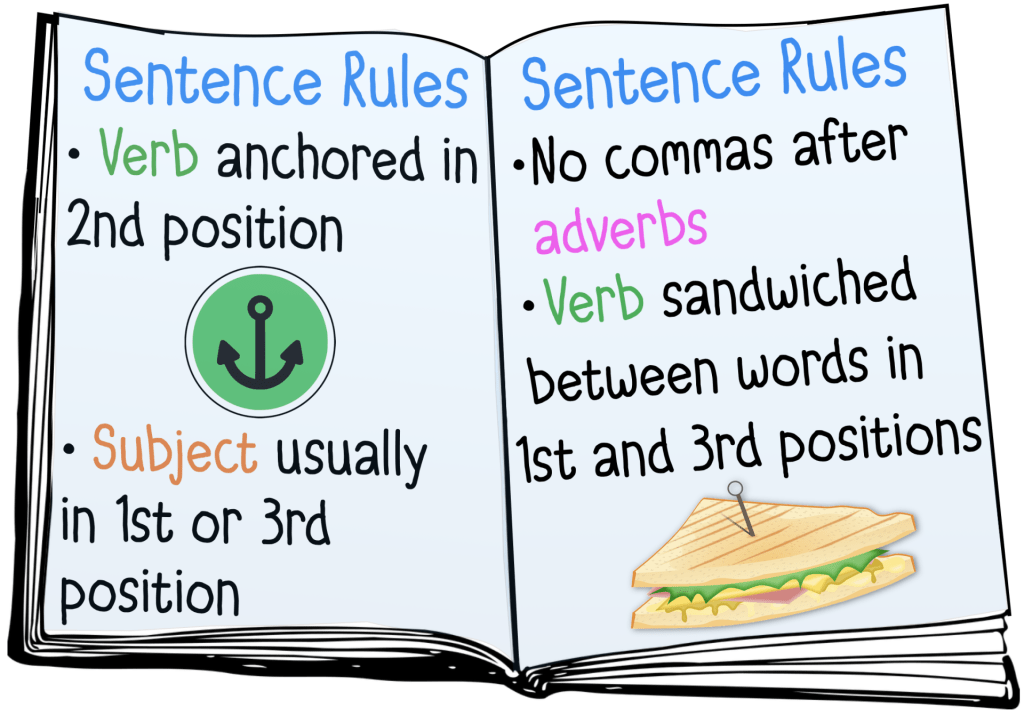
Quiz: The Flexible German Sentence
Infer the sentence rules from colour-coded examples, then practise constructing and correcting sentences.
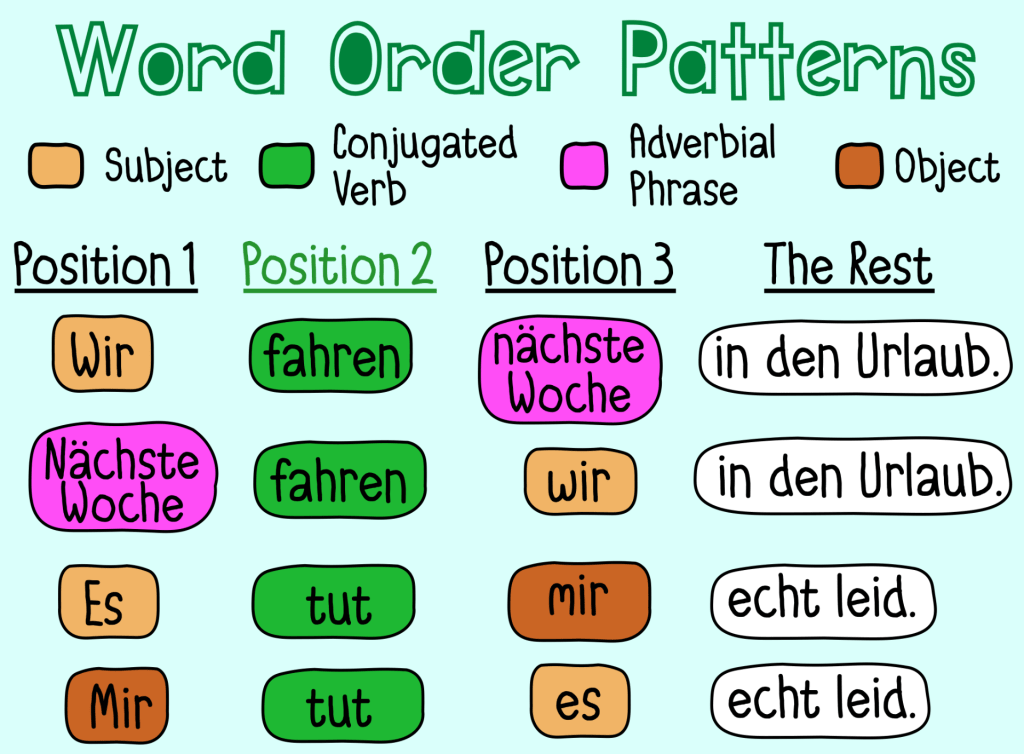
Quiz: The Flexible German Sentence: Word Order Patterns
A drag and drop quiz focusing on Positions 1, 2 and 3, with varying word order options to consider and apply.

